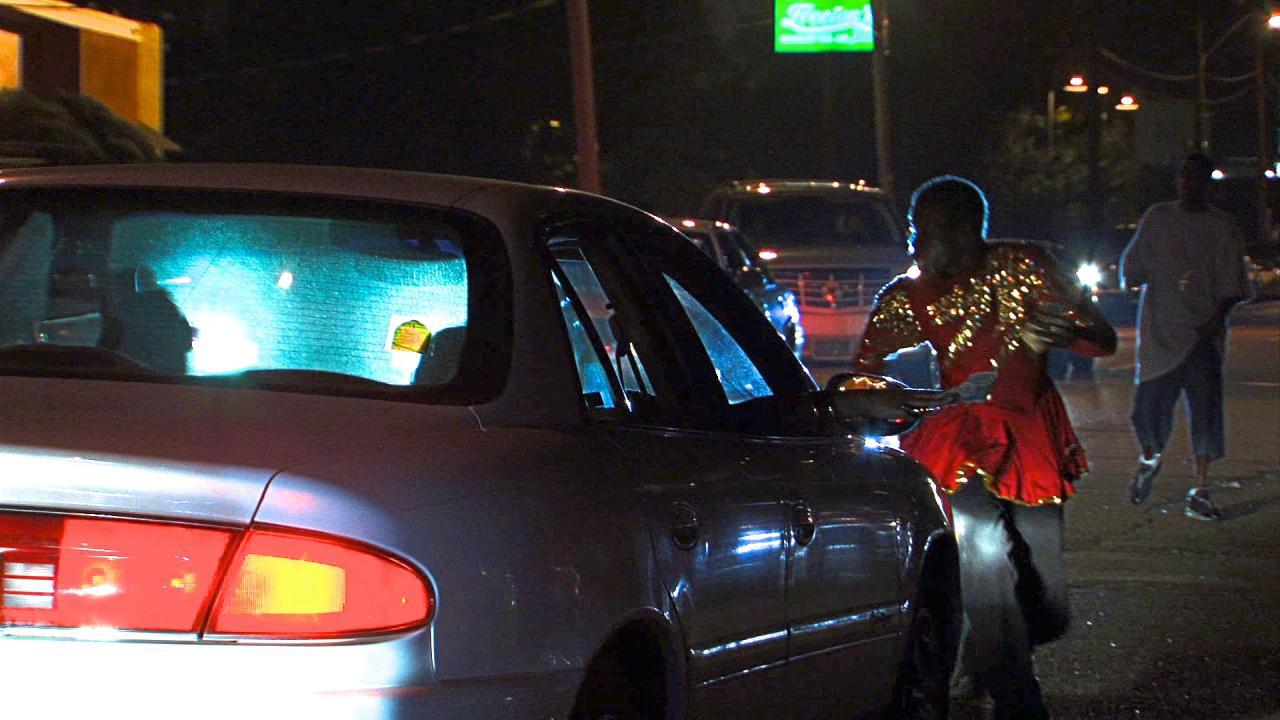JACKSON/MARKER 4AM
A night scene in Jackson, Mississippi: out on a street an Afro-American dances to rap music that can be heard from off camera. The camera quickly pans a lit veranda where a party seems to be going on. But the dancer (man – woman?) does not take any notice of it. He wears sneakers and dark pants, on top, a red dress that is set with sequins—a costume like a figure skater or a drag version of Spiderman. A street performance at 4 a.m. that also has to do with earning enough money for the next day: the dancer takes a bill in his mouth, like in a cartoon, the bill hangs like a tongue between his lips. At the end of the four-minute film, someone from the passenger seat of a car hands him another bill, but he is so enwrapped in his dance that he doesn’t notice. In the glow of the headlight, he moves to the other side of the car where the bill is handed to him a second time. A tense moment offering a minor climax in a scene, which as an extremely reduced excerpt from a complex social situation, refers to no more than the dancer’s self-absorption in his (inner) music. Ruth Beckermann places a quote of Chris Marker before the scene in which a quote by a character named Elena Andreievna is foisted on Puschkin, about a flute in South America whose sound can be heard only by those who play it. Although the quote is extremely illuminating for the scene that follows, it also drags us into a state of great ambivalence since the quote is made up, and made up in a way that also documentary films are: as movements through a reality that constantly abstracts into fiction.
(Bert Rebhandl)
JACKSON/MARKER 4AM
2012
Austria
3 min 25 sec

